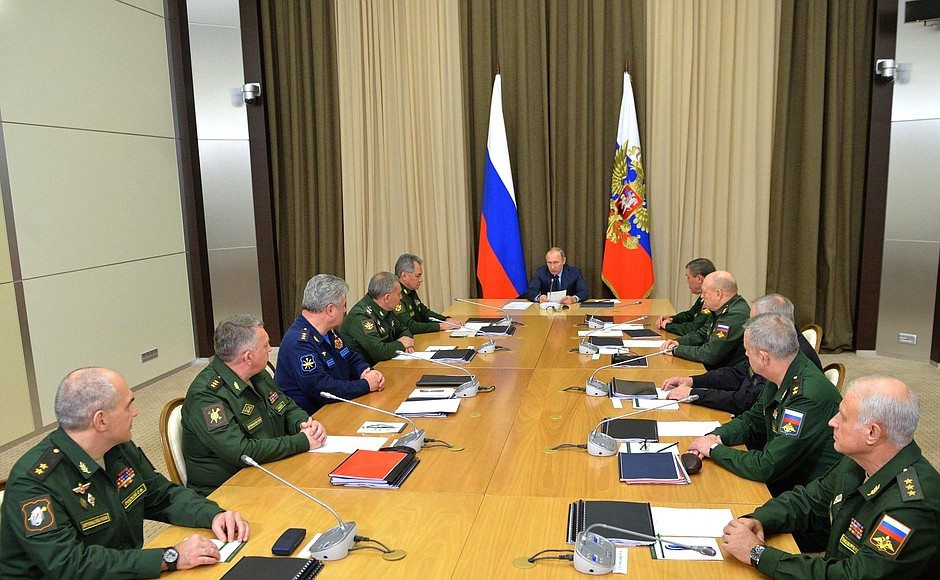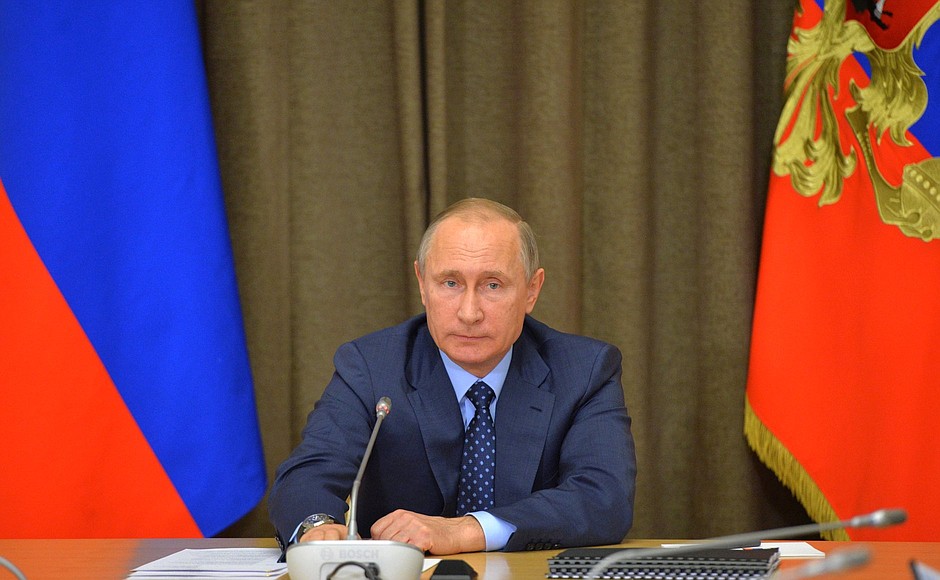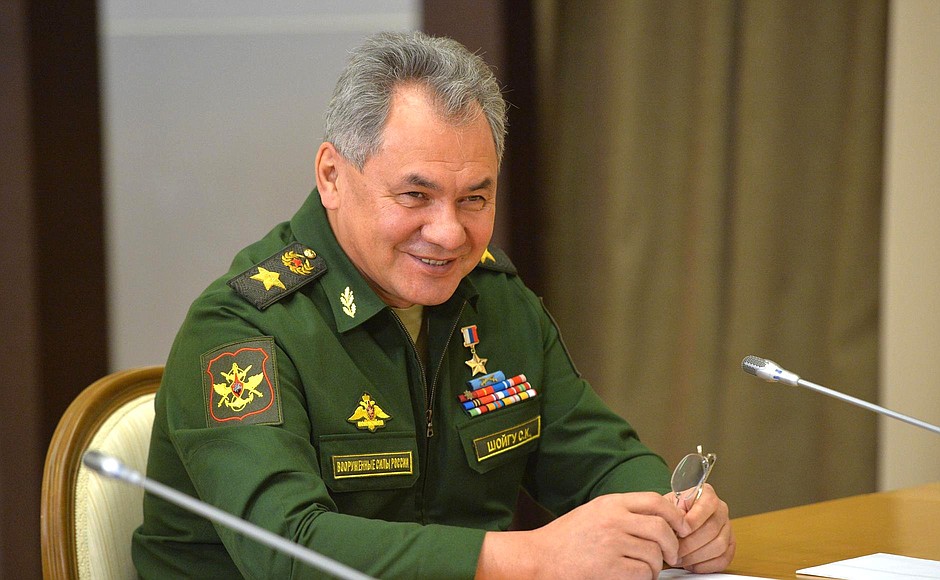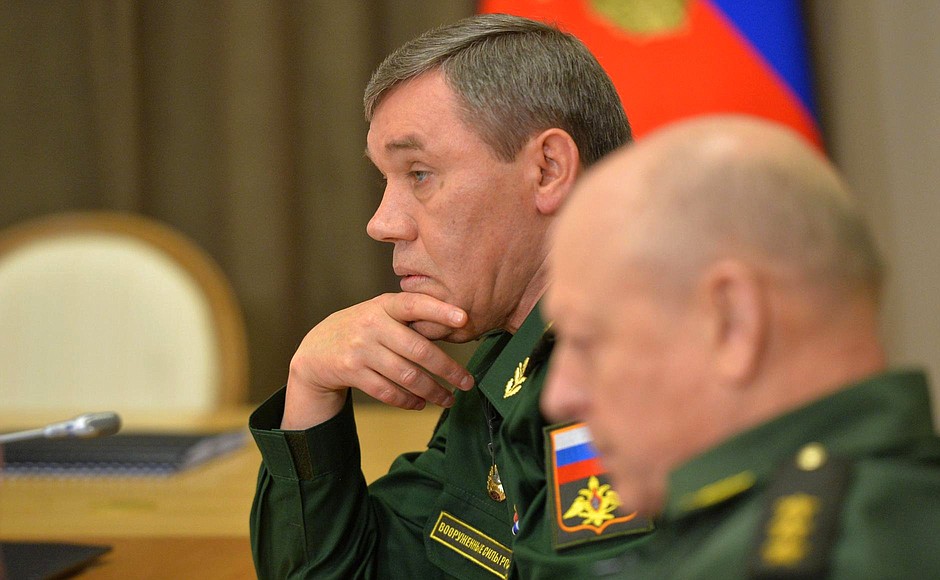President of Russia Vladimir Putin: Good afternoon, colleagues.
We are here today to analyse the main directions for developing our Armed Forces and setting our immediate and long-term military development tasks.
Over the past year, we have continued our course of improving our Armed Forces’ combat capability and mobility, modernising arms and equipment, and building up the human resources potential.
The experience gained during the military operations against international terrorists in Syria should be systematically put into practice in training and preparation work at the service personnel and command levels. It should be put to use when conducting exercises and holding snap inspections, and the defence industry designers and engineers should take it into account when developing new arms.
See also
Re-equipment programmes supplying the units with the latest arms have continued as planned. Our forces are receiving modern strategic missile systems and new atomic and multi-purpose submarines and surface vessels. Active work continued on improving our air and space defence systems. The ground forces and the paratroopers continue to receive new aircraft, arms and equipment.
We have seen good results in operations and combat preparation. A number of large-scale exercises and manoeuvres took place over the course of the year, giving us the chance to test the use of various units and forces, including with participation by civilian command bodies at various levels. We will discuss this in greater detail at the upcoming Defence Ministry Board review meeting.
Overall, we continue our planned and steady course of developing our Armed Forces. Our task is to raise the forces’ capabilities, taking into account the key trends and processes underway in the world’s leading militaries.
At the same time, as I said yesterday, when I opened this latest round of meetings, our military development and equipment modernisation work must proceed in strict accordance with the principle of what is reasonably sufficient and in accordance with our country’s economic possibilities. We must carry out this work while at the same time continuing to move towards our set economic growth targets, developing civilian production sectors, and guaranteeing fulfilment of our social sector obligations. There must be no contradictions here. All of these different areas must be in natural coordination and must complement each other.
Let us start work.
<…>



